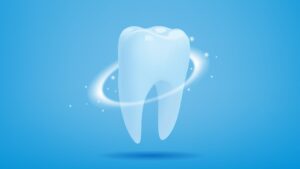A toothache can disrupt your day and cause serious discomfort, whether it’s a sharp, shooting pain or a dull, throbbing ache. While professional dental care is the best way to address the root cause of your tooth pain, there are several quick remedies you can try at home to ease the discomfort until you can visit a trusted multi-specialty dental clinic like Krishee’s Dental.
At Krishees Dental, we know how frustrating tooth pain can be. In this blog post, we’ll share some effective ways to relieve toothache pain temporarily, along with tips on when it’s time to see a dentist for a permanent solution.
What Causes Toothaches?
Before diving into remedies, it’s helpful to understand why tooth pain occurs. Common causes of toothaches include:
Cavities: Tooth decay can reach the nerve, causing sharp, intense pain.
Gum Disease: Inflammation and infection in the gums can lead to painful sensations in the teeth.
Tooth Abscess: A bacterial infection can cause swelling and throbbing pain in the tooth and surrounding areas.
Tooth Sensitivity: Hot, cold, or sugary foods can trigger pain if your tooth’s enamel has worn down.
Wisdom Teeth: Erupting or impacted wisdom teeth can cause pressure and discomfort.
Teeth Grinding: Bruxism can lead to tooth pain and jaw tension.
While these causes can vary, it’s essential to see a dentist to determine the exact cause and receive the right treatment. At Krishees Dental, we offer a range of services to help you resolve the root cause of your tooth pain and get back to living good.


Quick Remedies to Alleviate Toothache Pain
If you’re dealing with toothache pain, try these home remedies to relieve your discomfort until you can schedule a visit with your dentist.
1. Cold Compress: Reduce Pain and Swelling
A cold compress provides immediate relief by numbing the area and reducing swelling. The cold constricts blood vessels, which helps reduce pain and inflammation around the affected tooth.
How to use it:
– Wrap some ice cubes in a clean cloth or use an ice pack.
– Hold it against your cheek near the painful tooth for 15-20 minutes.
– Repeat every hour as needed.
A cold compress works especially well if your toothache is related to swelling or an injury.
2. Saltwater Rinse: Cleanse and Soothe
Rinsing your mouth with warm saltwater helps disinfect the area, reduce bacteria, and promote healing. It’s a simple and effective way to manage toothache pain.
How to use it:
– Dissolve 1/2 teaspoon of salt in a glass of warm water.
– Swish it around your mouth for 30 seconds, especially around the sore area.
– Spit it out and repeat several times a day.
A saltwater rinse helps remove food particles, reduces inflammation, and can ease discomfort from gum infections.
3. Clove Oil: Numb the Pain Naturally
Clove oil contains eugenol, a natural analgesic, which makes it a go-to remedy for toothache pain. It helps numb the area and reduce inflammation.
How to use it:
– Soak a cotton ball in clove oil and apply it directly to the painful tooth.
– You can also dilute clove oil with a few drops of olive oil to avoid irritation.
Clove oil is particularly effective for toothaches caused by sensitive nerves or gum irritation.
4. Peppermint Tea Bag: Cool and Calm
Peppermint has mild numbing properties that can provide a cooling sensation and ease toothache pain. Using a cooled peppermint tea bag can offer temporary relief.
How to use it:
– Steep a peppermint tea bag in hot water.
– Let it cool, then place it directly on the sore tooth or gum for 15-20 minutes.
– Repeat as needed.
Peppermint’s soothing effect can help ease pain caused by gum irritation or tooth sensitivity.
5. Hydrogen Peroxide Rinse: Kill Bacteria and Relieve Pain
Hydrogen peroxide has antibacterial properties that can help reduce infection and inflammation, making it useful for managing toothache pain.
How to use it:
– Mix equal parts of 3% hydrogen peroxide and water.
– Swish the mixture around your mouth for 30 seconds, targeting the painful area.
– Spit it out and rinse with plain water.
Use this rinse once or twice a day. Be sure not to swallow any of the solution.
6. Over-the-Counter Pain Relievers: Quick Pain Relief
If you need immediate relief from toothache pain, over-the-counter medications like ibuprofen, acetaminophen, or aspirin can help reduce pain and inflammation.
How to use it:
– Follow the recommended dosage instructions on the medication label.
– Never place aspirin directly on the tooth or gums, as it can cause irritation.
Pain relievers can help manage discomfort temporarily, but they won’t treat the underlying cause of the toothache.
7. Garlic: Natural Antibacterial and Pain Reliever
Garlic has both antibacterial and pain-relieving properties, making it an effective home remedy for toothache pain.
How to use it:
– Crush a fresh garlic clove to release its juices.
– Mix the crushed garlic with a pinch of salt to make a paste.
– Apply the paste directly to the painful tooth for several minutes before rinsing.
Alternatively, you can chew a raw garlic clove for quick relief. However, be aware that it may have a strong smell and taste.
8. Avoid Trigger Foods
Certain foods can aggravate your toothache pain, so it’s important to avoid them while you’re managing discomfort. These include:
Hot or cold foods: These can trigger sharp pain in sensitive teeth.
Sugary or acidic foods: These can irritate the tooth and gums, especially if there’s an infection or decay.
Hard foods: Chewing on tough or crunchy foods may cause further irritation or damage to a sensitive tooth.
Stick to soft, bland foods until you can see your dentist.


When to Visit Krishees Dental
Although these remedies can provide temporary relief, it’s important to visit a multi-specialty dental clinic like Krishees Dental for a full examination. Persistent tooth pain may be a sign of a more serious issue, such as a cavity, gum infection, or tooth abscess, which requires professional treatment.
You should schedule an appointment with a dentist if:
– The pain persists for more than a couple of days.
– You experience swelling, fever, or difficulty breathing.
– The pain is severe and interferes with daily activities.
At Krishees Dental, our expert team can diagnose the underlying cause of your toothache pain and provide the most effective treatments. Whether you need a filling, root canal, or other restorative procedures, we offer comprehensive care to help you regain your oral health and eliminate tooth pain for good.
Conclusion
Dealing with a toothache can be a frustrating experience, but these quick remedies can provide relief while you await professional care. Remember, Krishees Dental is here to offer you the best in dental care and treatment. If you’re dealing with persistent tooth pain, don’t wait, contact us today to book an appointment and find the lasting relief you need.
Your smile deserves the best care, and we’re here to make sure you get it.
FAQs
1. What causes a toothache?
A toothache can be caused by a variety of issues, including:
Tooth decay (cavities): When plaque and bacteria erode the enamel of your tooth, causing sensitivity or pain.
Gum disease: Infection or inflammation in the gums can lead to discomfort around the teeth.
Tooth abscess: A bacterial infection can form inside the tooth, leading to severe pain and swelling.
Tooth sensitivity: Exposed tooth roots or worn enamel can make your teeth sensitive to hot, cold, or sweet foods.
Injury or trauma: A cracked or broken tooth can cause sharp pain.
Teeth grinding (bruxism): Constant grinding of teeth can lead to soreness in your teeth and jaw.
Impacted or erupting wisdom teeth: These can cause pressure and pain in the back of the mouth.
2. How can I relieve toothache pain at home?
You can try several home remedies to temporarily relieve toothache pain until you can get professional treatment:
Cold compress: Apply an ice pack wrapped in cloth to your cheek for 15-20 minutes to reduce pain and swelling.
Saltwater rinse: Mix a teaspoon of salt in warm water and swish around your mouth to clean the area and reduce inflammation.
Clove oil: Apply a small amount of clove oil to the painful area to numb the pain, as clove oil contains natural anesthetic properties.
Peppermint tea bag: Place a cooled tea bag on the painful area to soothe the discomfort.
Over-the-counter pain relievers: Ibuprofen or acetaminophen can temporarily reduce pain and inflammation.
3. When should I see a dentist for my toothache?
If your tooth pain lasts more than a couple of days, or if it worsens, you should visit a dentist as soon as possible. You should also schedule an appointment if you experience any of the following:
– Severe pain that interferes with your daily activities.
– Swelling in your face, gums, or jaw.
– Fever or trouble swallowing or breathing.
– Pus or a bad taste in your mouth (which may indicate an abscess).
– Tooth sensitivity to hot and cold that doesn’t go away after a short time.
Ignoring tooth pain can lead to more serious dental problems, including infections or damage to the tooth.
4. What happens if I don’t treat my toothache?
If you don’t address the underlying cause of your toothache pain, the issue could worsen. Possible complications include:
– Tooth decay spreading deeper into the tooth, leading to root infection or abscess.
– Gum disease can progress, causing pain, bleeding gums, and even tooth loss.
– Tooth abscesses can lead to more severe infections that might require root canal treatment or tooth extraction.
– Tooth fractures can become more severe, leading to the need for crowns or other restorative treatments.
It’s always best to visit a dentist to prevent further damage and to treat the underlying cause.
5. Can a toothache go away on its own?
In some cases, a toothache may subside temporarily if the underlying cause is minor, such as a small cavity or mild gum irritation. However, even if the pain seems to go away, it’s important to schedule a dental appointment to ensure that there is no underlying issue that could get worse over time.


Leave a Reply